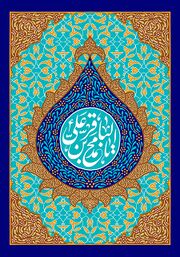In the realm of Islamic scholarship, particularly within Shia Islam, the figure of Burayd b. Mu'awiya al-'Ijli emerges as a significant source of teachings and wisdom. A multifaceted personality, al-'Ijli offers insights that not only bolster one's understanding of faith, but also encourage an introspective examination of spirituality and the ethical dimensions of quotidian life. This article delves into the teachings attributed to al-'Ijli, exploring his contributions, methodology, and the implications of his insights for contemporary adherents of Shia Islam.
To contextualize Burayd b. Mu'awiya al-'Ijli, one must first consider the milieu in which he operated. Flourishing in the 8th century, during the formative years of Shia scholarship, al-'Ijli was a contemporary of notable Imams and scholars. His intellectual pursuits were largely shaped by the socio-political environment of his time, characterized by the evolving dynamics between the Umayyad and Abbasid caliphates. What does this historical backdrop suggest about the challenges he faced?
One might ask: in an era rife with sectarian strife and political machinations, how did al-'Ijli navigate these complexities to construct a coherent theological narrative? His approach to Islamic teachings can be understood through the lens of consensus-building among varying interpretations of Islamic doctrine. Al-'Ijli is known for his emphasis on collective discourse and scholarly debates, which provided a fertile ground for the development of Shia thought.
Among his significant contributions is the articulation of ethical principles rooted in the Islamic faith. Al-'Ijli’s framework underscores the importance of moral rectitude, advocating for a life characterized by honesty, justice, and compassion. In a world often governed by avarice and treachery, could these teachings be viewed as radical? Indeed, al-'Ijli challenges his followers to rise above the mundane, engaging with core principles that sanctify everyday interactions.
Furthermore, al-'Ijli's teachings on the importance of communal harmony stand out as particularly prescient. He urges adherents to foster unity among the Muslim Ummah, regardless of denominational differences. The challenge, however, remains: can today's followers, often entrenched in dogmatic divisions, heed his call for unity? This inquiry impels a deeper engagement with Shia teachings, as it requires a reassessment of long-held beliefs in light of al-'Ijli's exhortation.
At the heart of al-'Ijli's philosophy lies the doctrine of Imamat, or leadership, which posits that divine guidance continues through a succession of Imams. This belief not only shapes Shia identity but also fosters an understanding of authority that transcends mere political governance. Could it be argued that al-'Ijli, through his affirmation of the Imamat, lays the groundwork for a more profound, spiritual leadership model? This raises provocative questions about the relationship between spiritual authority and ethical governance.
Moreover, al-'Ijli is credited with a systematic approach to Hadith — the sayings and actions of the Prophet Muhammad. He meticulously evaluated narrations, championing rigorous standards for authenticity. His scholarship serves to remind contemporary Muslims of the critical importance of intellectual diligence. Are modern practices sufficiently discerning? This inquiry can serve as a springboard for examining the authenticity and credibility of contemporary theological discourses.
In terms of ritual practice, al-'Ijli's emphasis on the significance of the Ahl al-Bayt—the family of the Prophet—reinforces the emotional and spiritual connection Shia Muslims maintain with these central figures. Rituals such as mourning observances for the martyrdom of Imam Hussain, for example, exemplify al-'Ijli's teachings and their embodiment in communal practices. Does the observance of these rituals provide an innovative means to navigate modern dilemmas in faith and identity? Such questions invite reflections on the dynamic interplay between tradition and contemporary life.
In addressing challenges in faith, al-'Ijli's teachings also offer guidance through trials and tribulations. His insights into patience, fortitude, and reliance on divine wisdom provide a framework for coping with adversity. An essential question arises: how have the teachings of al-'Ijli shaped the responses of Shia communities in times of crisis? The answers may lie in how these teachings resonate through history and continue to inspire resilience among adherents.
Lastly, in contemplating Burayd b. Mu'awiya al-'Ijli’s legacy, it is imperative to recognize the relevance of his teachings in today's digital age. The proliferation of information presents both a challenge and an opportunity for modern Shia scholars. Can the nuanced approach of al-'Ijli be adapted to address contemporary issues, such as the interconnectivity of global cultures and the ensuing ethical dilemmas? Formidable questions indeed arise when one considers how an ancient paradigm can inform the complexities of modernity.
In conclusion, the teachings of Burayd b. Mu'awiya al-'Ijli transcend time, inviting reflection and engagement with the fundamental tenets of faith, ethics, and community. His contributions compel adherents to critically examine their beliefs, striving for unity and moral integrity in an increasingly fractured world. By embracing al-'Ijli's insights, the challenges of today may be navigated with the wisdom garnered from past teachings, forging a path toward a more cohesive and principled future.


